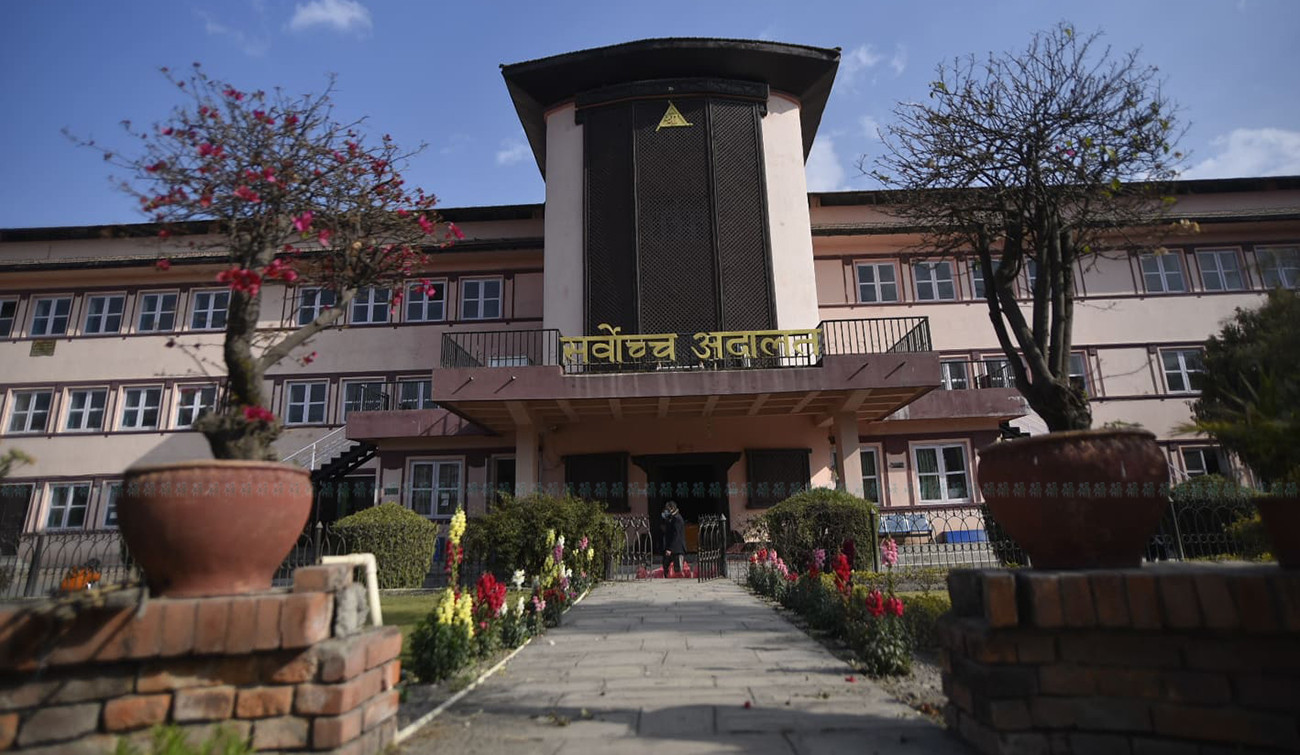The Supreme Court has annulled the Special Court's decision in a corruption case against officials of the Tax Settlement Commission (TSC), pointing out serious errors.
The apex court has sent the case back to the Special Court for a fresh hearing.
A bench of Justices Sharanga Subedi and Tek Prasad Dhungana, while hearing a habeas corpus petition filed by the then TSC chairman Lumbadhwaj Mahat, and members Chudamani Sharma and Umesh Prasad Dhakal, identified serious errors in the Special Court’s verdict.
Following the Supreme Court's ruling on Tuesday, Mahat, Dhakal, and Sharma, who were named defendants by the Commission for the Investigation of Abuse of Authority (CIAA), have been released from Dilli Bazar Prison.
After the ruling directing a fresh hearing, the Special Court has placed all three on general bail. Krishna Sharan Lamichhane, deputy registrar of the Special Court, said that they have been summoned for July 28.
“Following the Supreme Court’s decision, they have been placed on general bail and summoned for July 28,” he said.
The CIAA had filed a case against the three at the Special Court on July 16, 2017, accusing them of committing corruption at the TSC.
On June 23, 2021, the CIAA filed a supplementary charge sheet against them.
Hearing the case on June 1, 2023, the Special Court found the three guilty of corruption. On June 20, 2023, they were sentenced to nine years and one month each in prison and fined Rs 4.1 billion.
They then appealed against the verdict at the Supreme Court.
The apex court noted that the Special Court’s decision contained serious errors, which would result in injustice to the accused.
“The verdict issued by the Special Court on June 20, 2023, was found to contain grave legal flaws from the viewpoint of fair hearing, principles of natural justice, and evidence collection and evaluation. Hence, the decision has been annulled,” the Supreme Court’s ruling stated.
The defendants had raised concerns that while the Special Court consulted experts during the case proceedings, they were neither informed about it nor given an opportunity for cross-examination (debate or presenting arguments).
The Supreme Court noted that the Special Court failed to legally address these concerns.
On May 17, 2023, the Special Court called experts to the judge’s chamber and sought their opinions. However, it later claimed that it had only consulted them, not sought their opinions.
“The bench was found to have justified in its decision that considering the technical nature and complexity, it sought consultation during the case hearing to ensure judicial confidence in the theoretical and legal aspects of the tax system, to aid the judges in making a decision, and to bring the dispute to a just conclusion and deliver justice,” the Supreme Court verdict stated.
The argument that experts were only consulted and their opinions were not sought holds no merit, the ruling added.
The Supreme Court also noted that if consultation had taken place in the courtroom, the defense would not have been unaware of it.
It stated that the Special Court erred by not giving the defense an opportunity to present counterarguments.
Additionally, the verdict pointed out that the Special Court included the tax amount for that fiscal year in the claimed corruption amount without addressing whether it was permissible and made contradictory interpretations while the case was still under consideration in the Supreme Court.

